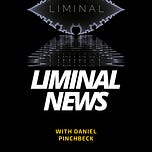I hope you enjoy this interview with Mark Stahlman, founder of the Center for the Study of Digital Life (CSDL). I think it is a fascinating conversation!
Stahlman has an impressive Bio with many accomplishments in technology and business:
Mark Stahlman is President of the Center for the Study of Digital Life (CSDL). A retired Wall Street technology strategist, investment banker and serial entrepreneur, he launched his first software company – Computron Technologies, Inc. – in the early 1970s after leaving his study of Theology (University of Chicago) and Molecular Genetics (University of Wisconsin, Madison) to join the still nascent digital revolution. Stahlman started his digital career as a computer architect and programmer, designing computer and networking systems for Wang Labs, Citibank and the Diplomat Arabic word processor for Computron. … He formed the New Media banking practice which managed the initial public offering for America Online (AOL) in 1992. Stahlman’s work in computer architecture led him to coin the term “network computing,” which Sun Microsystems adopted for their corporate motto “The Network is the Computer.” … His godfather was Norbert Wiener, and he considers CSDL to be a continuation of his father’s participation in Wiener’s “Genius Project.”
Stahlman also worked with a division of the Pentagon analyzing macro-trends. He has a long-term fascination with the work of media theorist Marshall McLuhan, who is a major influence on CSDL.
I have known Stahlman tangentially for many years, but only became interested in his ideas when he made a comment to one of my Facebook posts including a link from his essay, The Inner Senses and Human Engineering, published in the only issue (so far) of the CSDL journal, Dianoetikon. His essay argues that during the last century, corporations and the military made intensive, well-funded efforts to master psychological control and manipulation. But in the end, they discovered that they weren’t able to entirely control the human subject or re-engineer human psychology. This has led to a new initiative, aimed to create artificial people, replacing human beings with robots and Artificial Intelligence:
When you hear a tech executive waxing expansively about space travel, rest assured that humans are not likely to be the explorers. Having extravagantly failed to engineer a “better human,” the sentiment today has shifted towards “replacing” them. Replacing us. All of us. With something better. Something no longer “animal.”
Russell Brand has been covering aspects of this very well in his recent YouTube videos. He explores the mass implementation of automation to make workers redundant while building armies of killer robots for the police and military. In another video, he surveys new technologies to monitor workers’ brainwaves, identifying when they lose focus or perhaps have rebellious/nonconformist thoughts. Along with AI that may replace many white collar professions (journalists, legal assistants, programmers, accountants, etcetera), all of this is coming very fast.
Stahlman makes a very intricate and compelling argument that we must return to older ideas of the human soul, found in Aristotle and Aquinas, among others. I was struck by this as I have been writing recently about the soul, inspired by Rudolf Steiner and Patrick Harpur’s The Secret Tradition of the Soul. Following McLuhan, Stahlman proposes that the electronic medium of television led to an over-focus on illusory inner worlds and imagination, as opposed to memory (for Aquinas, imagination and memory are two essential inward senses or faculties). Now, as we confront the overwhelming assault of information and distraction from the digital domain, we have to reflect deeper on our situation and, above all, remember what it means to be human.
Please let me know how you resonated with this interview in the comments. I found it a great relief to hear Stahlman’s thorough-going approach to our current predicament. You can find more videos of CSDL presentations of his ideas here.
Listen to this episode with a 7-day free trial
Subscribe to Liminal News With Daniel Pinchbeck to listen to this post and get 7 days of free access to the full post archives.













